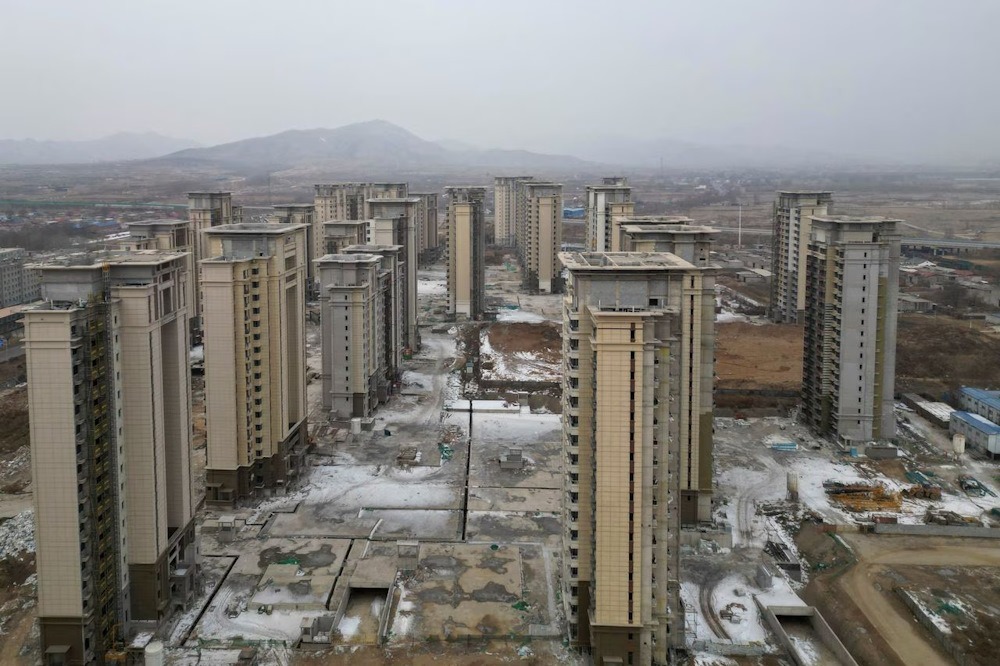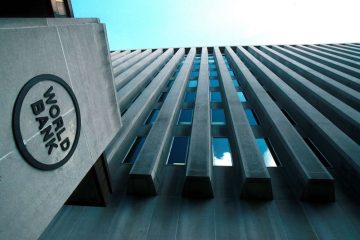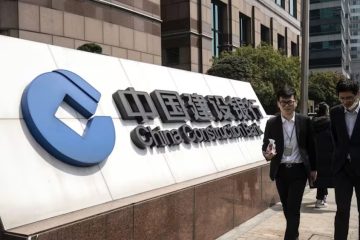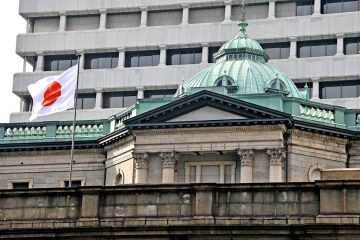How foolish China’s real estate boom was, yet no one halted it

Upon visiting the Tianjin Goldin Metropolitan, a luxurious new development in northern China, Parker Quillen, a hedge-fund manager from New York, pondered the challenge of how the developer would occupy such a vast area.
The development featured residential units with a minimum price of $1 million, as well as proposals for a larger office tower than the Empire State Building, an opera venue, commercial centers, and hotels. The entire square footage was intended to surpass the land area of Monaco.
Was there a strategy in place to entice potential purchasers? Quillen inquired. “Polo,” stated the marketing agent as he guided him around the area. Do you mean the sport of polo? Are you referring to the equestrian activity? The individual inquired. Precisely, he remembered her uttering.
The agent, adorned in equestrian attire, guided him inside a barn housing over 100 polo ponies. Quillen inquired about whether Goldin’s creator, a billionaire who gained wealth by selling computer displays and has a passion for polo, had conducted a feasibility analysis for the project. She expressed complete ignorance.
Subsequently, I came to the realization that the intended objective was for multinational leaders to establish their corporate headquarters in Tianjin due to their fondness for polo, as stated by Quillen. I exclaimed, “Oh my God.”
Upon Quillen’s arrival in New York, he increased his financial investments in bets on Chinese property equities.
That occurred in 2016, at the initial stages of the prosperous period when the Chinese real estate market was beginning to experience significant growth. Nevertheless, the reality was apparent to those with the necessary discernment: The economic expansion had transformed into an inflated market that was highly likely to result in a disastrous outcome.
The bubble continued to deteriorate more, as everyone was unwilling to halt the music. Chinese developers, property buyers, real-estate agents, and even the Wall Street banks that facilitated the bubble all disregarded cautionary indications.
Developers employed tactics to conceal the precise magnitude of their debt, with the assistance of bankers and attorneys. Despite their suspicions about an overbuilt property market, buyers nonetheless made purchases. Chinese and international investors, who are looking for very profitable returns, provided developers with a large amount of financing.
The cheerleaders were basing their actions on a belief that China’s leadership would not permit the market to see a significant decline. The Chinese population have predominantly allocated their wealth into real estate investments. Allowing the market to decline sharply could result in a significant loss of the population’s savings and undermine confidence in the Communist Party.
China is currently facing the consequences of its failure to take earlier action to control the situation.
Over 50 Chinese developers have failed to meet their international loan obligations. Keyan, a private think tank specializing on Chinese property, reports that over 500,000 individuals have been rendered unemployed. Approximately 20 million housing units in China remain incomplete, requiring an estimated $440 billion to conclude construction.
In March, there was a 5.9% decrease in the prices of pre-owned properties in major cities. Local governments, lacking revenue from land sales to developers, are facing difficulties in meeting their financial obligations. The economy as a whole is delicate, since the real estate sector and its associated industries, which previously contributed approximately 25% to the gross domestic product, are now exerting a more negative influence on growth.
In 2016, Parker Quillen visited the polo grounds in Tianjin, while two accountants from Hong Kong embarked on a journey throughout mainland China using a rented Buick.
Gillem Tulloch, Nigel Stevenson, and their company, GMT Research, have expertise in uncovering what they refer to as “financial anomalies” and “shenanigans.” They have strong suspicions that such activities are prevalent in China’s property market.
In the Mao Zedong era, which occurred several decades ago, the state had complete control over the market, and the majority of individuals resided in residences given by their Communist Party work units. During the 1990s, the government began to loosen regulations on the market, leading to the emergence of private developers who rapidly constructed several housing towers. This period witnessed one of the largest investment booms in history.
When Tulloch and Stevenson embarked on their journey, numerous government officials and economists were cautioning about the existence of a bubble. However, anytime the market exhibited indications of weakening, the government would intervene. Beijing implemented new measures to encourage purchasing, including reducing lending rates and removing restrictions on property purchases. Confidence was regained, leading to a resurgence in sales.
Tulloch and Stevenson harbored doubts. While traveling across the country, they were astounded by the abundance of vacant structures and failed endeavors.
They focused specifically on the projects of China Evergrande Group, the largest developer in the country based on sales. Hui Ka Yan, the founder and chairman of the company, was on track to become the wealthiest individual in China in 2017, with a personal fortune over $40 billion, as reported by Forbes.
Tulloch and Stevenson conducted a comprehensive assessment of 40 Evergrande projects in 16 locations. Their findings indicate that a significant number of these projects are unproductive assets, generating minimal or no revenue. This includes hotels with low occupancy rates, unoccupied stores, and entire developments located far away from densely populated areas.
In a port city near the North Korean border, there was a project where six residential towers were left abandoned, with no workers, residents, or marketing staff. However, Tulloch and Stevenson report that Evergrande continued to consider the project as a performing asset on its financial records, without reducing its value.
Tulloch and Stevenson focused specifically on Evergrande’s parking garages, noting that a significant number of them were largely unoccupied. According to their analysis, Evergrande had constructed approximately 400,000 parking spaces that it was encountering difficulty in leasing or selling. However, despite this challenge, Evergrande’s audited financial statements still assigned a value of $7.5 billion to these parking spaces, equating to an approximate value of $20,000 per space.
The developer chose to categorize the parking spaces as investment properties instead of inventory assets, which is an uncommon accounting practice among its competitors. This allowed Evergrande to inflate their worth and recognize profits ahead of time, according to the two accountants.
In a study titled “Auditors Asleep,” the company informed its clients that, according to our assessment, it is bankrupt and its equity holds no value. The report also determined that Evergrande’s sole means of survival would be to acquire more debt.
Evergrande has asserted the validity of its accounting and business operations, affirming that its financial results underwent an audit.
Tulloch and Stevenson stated that while many of their clients concurred with their analysis, they believe that just a few of them actually took action based on it.
They made the correct decision by choosing not to. The Chinese property market was on the brink of a recovery, thanks to the government’s implementation of a property-market rescue plan one year prior. In 2017, there was an 11% increase in home sales, and Evergrande’s shares traded on the Hong Kong stock exchange had a significant leap of 458%.
For numerous individuals in China, real estate appears to be a more astute and more secure investment option compared to equities. Several individuals purchased multiple flats and left them unoccupied, content solely with observing their values appreciate.
Chen Yanzhi, at 35 years old, asserts that she initiated her real estate investments during her college years, following a little financial gain from stock trading. She commenced touring many developments across the country, acquiring units promptly whenever she encountered one that appealed to her.
Over the course of ten years, she engaged in the purchase and sale of over 20 residential properties in various locations including Nanjing, Shanghai, and Hainan province. The initial expenditure amounts to approximately $70,000. After a number of years, she purchased a property in Shanghai for a total of $3.8 million. “I have a deep passion for houses, and I am fascinated by every aspect of them,” Chen expressed during an interview.
Young individuals accumulated substantial wealth by working for real estate developers. Remen Xia, aged 40, held the position of sales manager at Evergrande in China’s Jilin province before transitioning to other property firms. By 2018 and 2019, Xia reported an annual income of $280,000, significantly surpassing the average salary in Jilin, which was less than $4,500, as indicated by data provider Wind.
Developers required a significant amount of funding, resulting in fees for financiers who were willing to raise it. Between 2017 and 2021, Chinese real-estate developers generated $258 billion by selling bonds denominated in US dollars, as reported by data provider Dealogic. Banks, including prominent institutions like Goldman Sachs and Morgan Stanley, earned $1.72 billion by underwriting these transactions.
Bankers convened at the Hong Kong Four Seasons hotel lobby to negotiate transactions. A hedge-fund manager reminisced about regularly attending parties on Chinese developers’ yachts, accompanied by Champagne and female escorts, at least once a month.
Chinese banks and global financial organizations, including Fidelity, Invesco, BlackRock, and Pimco, made investments in Chinese property bonds. The bonds offered high yields in the double digits, leading to a significant demand that beyond the available supply. As a result, investors seemed willing to accept questionable deal arrangements.
A commonly employed strategy, referred to as “hole-digging” by bankers and investors, entailed the utilization of shell subsidiaries to secure loans, with the parent development businesses providing guarantees. The guarantee remained in effect throughout the whole year, with the exception of June 30 and Dec. 31, which are the specific days that most Chinese property organizations employ to calculate their financial outcomes, as stated in the records examined by The Wall Street Journal.
The arrangement allowed the parent firms to evade the obligation of reporting the financial obligations resulting from their guarantee of the subsidiary’s debt on their own financial statements. According to lawyers and accountants, the act was not illegal because a balance sheet is intended to present a precise overview of a company’s financial condition at a certain moment.
According to developers and bankers involved with the activity, developers occasionally used the same collateral many times when borrowing money.
A high-ranking official at a hedge fund remembered observing the identical inventory of assets—such as shares of subsidiary companies owned by developers, outstanding debts, or personal aircraft and luxurious residences belonging to firm executives—listed on the contractual agreements for six different private loan offerings. Despite the requirement for big returns, he nonetheless purchased the debt.
The portfolio manager stated that if he decides not to disregard the collateral issue and declines to purchase such bonds, his performance will be ranked as the lowest and he will be terminated from his position.
Chinese banks displayed a strong willingness to underwrite these offerings, to the extent that they occasionally committed to investing tens of millions of dollars from their own funds in the bonds, regardless of the pricing. This information was shared by bankers and an executive from a development business. Bank participation in the deal would indicate to other investors that it is highly desirable, resulting in lower interest rates and reduced costs for developers seeking to acquire funds. The executive stated that during that period, it was our company who selected investors, rather than the other way around.
Evergrande, having achieved the status of China’s largest developer, has set a goal to be included among the top 100 global corporations by the year 2020.
An executive at a Chinese rating agency stated that Evergrande requested him to grant the business a sovereign credit rating, indicating that Evergrande would be considered as secure as the Chinese government.
Three major Chinese domestic enterprises were granted triple-A ratings, which represent the highest attainable rating. Evergrande received a B-plus rating from S&P Global, which is considered to be in the region of junk bonds.
Chinese state media emphasized the disparity, as People’s Daily pointed out that it was partially attributed to a “limited comprehension of Chinese companies.” People’s Daily held Western companies responsible for “overstating the possible risks of the Chinese economy and companies,” and suggested that international firms might be aiding short sellers.
Following a temporary halt caused by the coronavirus lockdowns in early 2020, the market promptly resumed its continuous ascent.
Goldman Sachs reports that the combined value of Chinese homes and developers’ inventories is $52 trillion, which is double the size of the U.S. residential market and larger than the whole U.S. bond market. According to a survey by China Guangfa Bank and Southwestern University of Finance and Economics, Chinese individuals had approximately 78% of their wealth invested in residential property, whereas in the United States, the figure was 35%.
Quillen, a hedge-fund manager from New York, and Tulloch and Stevenson, accountants from Hong Kong, who are skeptical, were perplexed.
Quillen incurred significant financial losses due to the short bets he acquired during his visit to the Tianjin construction. According to him, betting against China property stocks was comparable to engaging in a dialogue with the devil, who assured that a $10 stock would completely lose its value over a span of two years. “However, what the individual failed to mention,” he stated, “is that during that specific timeframe, the stock initially rises to a value of 100, and subsequently plummets to zero.”
By the end of 2020, it was increasingly challenging to disregard the indicators of a potential problem.
The prices in Tianjin were on par with the most costly areas of London. Countless properties around China remained unoccupied.
Quillen concluded that the writing on the wall was undeniably clear at this point. President Xi Jinping consistently emphasized the principle that “residences should be used for habitation, not for investment,” while news emerged that regulators were considering implementing stricter credit policies. Quillen initiated new short positions.
Approximately 20 million housing units throughout China remain incomplete, including a significant number in this halted China Evergrande project located outside Shijiazhuang.
On January 1, 2021, regulators implemented a policy called the “three red lines,” which placed limitations on the ability of highly indebted developers to obtain fresh loans. Banks initiated a request for loan repayments to be made ahead of schedule. Investors ceased purchasing bonds issued by developers.
Within a few months, Evergrande became incapable of remunerating suppliers for building materials and construction services. In August 2021, development was halted at numerous projects. In the subsequent year, it requested assistance from the government, but was not granted a financial rescue.
Chinese home owners ceased purchasing properties due to concerns that developers may face financial constraints and abandon construction, leaving their homes incomplete. Sales at China’s largest 100 developers experienced a significant decline. According to Dealogic, the issuance of high-yield bonds by Chinese developers decreased significantly from $23 billion in 2021 to $431 million in 2022.
Developers experienced a series of liquidity crises that occurred one after another, resembling a chain reaction. As of the conclusion of 2021, a high-yield-bond fund under the management of BlackRock maintained a remaining exposure of $941 million to China property bonds, while a Pimco fund held $741 million, as reported by Morningstar. Fidelity International’s exposure in one bond fund amounted to $1.28 billion.
Chen, an experienced individual investor in the real estate market, reported that currently, 50% of her properties are unoccupied, and a number of them have depreciated in value below their original purchase price. She expressed her lack of urgency to sell and maintained a positive outlook.
Xia, a former sales manager at Evergrande, left the sector in early 2023 due to his employer, another developer, failing to pay his wage for six consecutive months. Currently, he manages profiles on Chinese short-video platforms.
In August 2021, Stevenson, one of the accountants in Hong Kong, expressed that there was still potential for profit by engaging in short selling of Evergrande’s stock, despite the fact that the shares listed in Hong Kong had declined by 95% from their highest point. He forecasted that they will reach a value of zero.
Evergrande failed to meet its financial obligations on its global bonds in December 2021. In January 2024, a Hong Kong court issued a directive for Evergrande to undergo liquidation, resulting in the suspension of trading for its shares at a value of 2 cents each.
In March, the Chinese securities regulator revealed that Evergrande had exaggerated its sales figures in 2019 and 2020 by a combined amount of $78.4 billion, making it one of the greatest suspected instances of financial fraud.
PricewaterhouseCoopers (PwC) stepped down as Evergrande’s auditor in early 2023 because to its inability to access information on the recognition of revenue from certain property deals, along with other concerns. Tulloch, the second accountant from Hong Kong, stated that he recently submitted his firm’s 2016 report on Evergrande to a complaint line at PwC. However, he does not anticipate receiving a response.
Goldin Financial, the business responsible for the development of the Tianjin project that Quillen saw, has filed for bankruptcy. An office skyscraper in that location, fashioned in the likeness of a walking stick, has garnered popularity among global urban explorers who engage in daring activities and share videos of their exploits on YouTube. The Guinness Book of World Records has officially recognized it as the tallest uninhabited structure in the world.
In 2021, the horses, wines, and furniture of the polo center were put up for sale on an auction website.
Quillen, who currently holds the position of chief investment officer at Contrarian Alpha Management, refuses to disclose the exact amount he profited from his investments against Chinese developers. According to him, anyone who bet against the stock after it had a sudden increase in 2017 and managed to hold onto their position despite the stock’s rise would have gained a 100% return.






